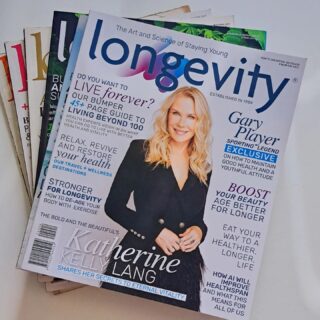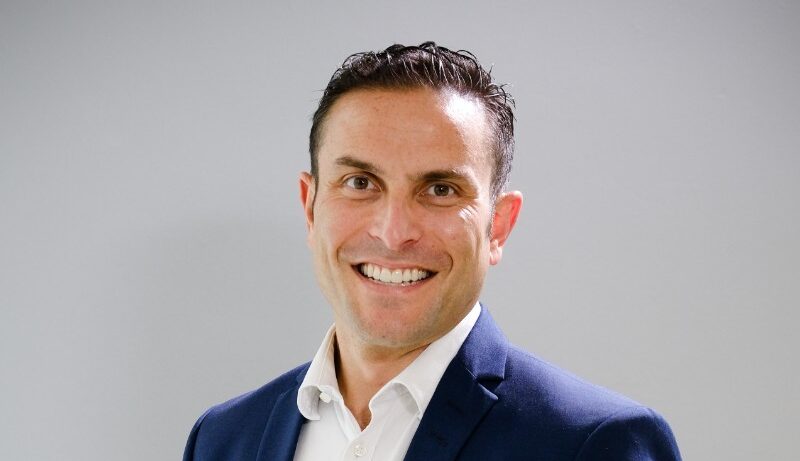We interviewed Dr. Jedd Myers, co-founder and CEO of the Health Impact Group. He explains why good health in the workplace is a business superpower.
We spend a significant portion of our lives carrying out our jobs. So, it’s not left field to say that it’s hard to have a fulfilling life without fulfilling work. Pushing yourself to achieve more in a demanding work environment has drawbacks long-term – and not just for your health. Contrary to popular belief, your company of employment won’t be thriving either.
The success of a business rides on the performance of its employees and executives. So, how can any of them deliver if their well-being is in shambles? If we want better business outcomes, we need to spotlight workplace wellness.
Dr. Jedd Myers explains the key pillars of corporate wellness
Dr. Jedd Myers is the co-founder and CEO of the Health Impact Group. The company provides wellness programs to businesses to create an impact at scale. In other words, a healthier employee does not only mean improved productivity and a greater return on investment for the company. It also paves the way for a happier home, richer social health, etc. outside the employee’s work. Ultimately, corporate wellness initiatives have a domino effect – and everyone benefits.
In Western culture, it’s almost seen as a weakness to acknowledge health as a risk, especially mental health. People won’t dare to discuss emotional matters either because it’s considered taboo. Accordingly, Dr Myers challenges this in our discussion. He addresses the importance of creating conversation among executive populations about mental, emotional, and physical health. However, we unpack this topic in greater length in our How to Live Beyond 100 bookazine.
The challenge of maintaining good health, especially for high-performing professionals
The journey of becoming an executive is a long one. After all, companies entrust executives to drive the strategy of the company – a hefty responsibility. However, most fail to understand the health risks posed by the position of running a business. These people are often breadwinners and leaders of financial security in their families and social circles. So the stakes are high in terms of performance.
Executives can’t afford to fall short. But the pressure to perform can prove dire for their well-being. Dr Myers described a typical executive in South Africa (based on his findings) and it was rather shocking. They are above 45 and obese with a chronic disease, a poor lifestyle, and poor stress coping mechanisms.
Everyone with an unhealthy habit knows it, but how do we provoke change?
It’s certainly important to inform these high-performing individuals about what their risks mean. However, Dr. Myers urged the need to do so in an unpatronizing way. Instead, it can be helpful to use their desire to improve their performance as an incentive to make changes to their lives. This is because the same interventions applied to perform better directly enhance well-being.
“I’m yet to meet a smoker who’s convinced that smoking is healthy for them. So, to have a conversation with every smoker that smoking is bad is, frankly, quite patronizing. Everyone knows this. Everyone who eats badly knows that they eat badly. So, that’s where the performance angle comes in,” argues Dr Myers.
Health Impact started to overlap their health discussion with their performance one. Essentially, longevity outcomes stem from performance optimization in any part of your life. This includes your formative years as an executive. Naturally, anyone will continue to engage in an activity that raises their quality of life.
Maintaining healthy habits in a society that acts against us
Corporate wellness requires making changes, but the real challenge is sticking to them. So, Health Impact tries to identify a “wellness epiphany” – the first step to curbing this dilemma. Effectively, this is an “ah-ha” moment. They want executives to realize the effect of their healthcare on their lives. From there, they can mold better habits by unlearning the old ones.
Only Dr. Myers acknowledges the difficulty of engaging in healthy habits consistently. He believes the society we live in acts against us. Our hunter-gatherer ancestors were excellent at storing and maintaining energy. Their bodies adapted to survival periods of drought, starvation, extreme weather, etc. Bearing in mind, they were uncertain where the next meal would come from.
Corporate wellness is a superpower
Today, society is set up differently and those same survival mechanisms work against us. We can order food without moving from our desks. What’s more, our stress compels us to make harmful food choices. This can set the foundation for an ultra-processed and nutritionally void diet. So, it’s paramount that the art of discipline comes in to sustain a picture of health.
“The superpower that executives need is discipline, not motivation. You just need the motivation to springboard into [making better habits] but motivation wanes. So, the superpower anyone needs to possess is just the discipline to maintain the habit,” discusses Dr. Myers, “Then there’s the science of habit stacking, but it’s rooted in discipline. It’s about being able to do something consistently, every single day.”
Dr Jedd Myers believes in the power of personalization and starting small
The one-size-fits-all approach to health has been refuted for some time. Everyone’s lifestyle, health, and stress levels look different. An executive may be at a different stage of chronic disease progression than other employees. Therefore, it’s important to tailor a corporate wellness program to suit the individual’s needs.
Health Impact integrates effective technology (like wearables) with their customized plans. This way, they can gauge someone’s unique health metrics, helping them better understand their own health.
Of course, Dr Myers highlights the need to start small to effect lasting change once a program begins. This can look like slowly cutting out certain foods and encouraging a little more movement. Over time, these micro adjustments will have a compounding effect. Ultimately, an executive will turn a habit into a lifestyle before he/she knows it.
The bottom line
It’s one thing to endure the adrenaline rushes associated with a faster work pace. But it’s another to experience it to the point where it affects other areas of your life. Executives may experience the weight of a business’s success on their shoulders. But it’s crucial to prevent the load from crushing their health.
As Dr. Myers explained, a corporate wellness protocol may be key in nailing the work-life balancing act. Consequently, it can only serve you and the company for the better.
Grab the latest issue of Longevity Magazine 
Interested in learning more about incorporating corporate wellness?
Access a digital copy of our How to Live Beyond 100 bookazine via Zinio, with the gorgeous Katherine Kelly Lang gracing the cover. Alternatively, readers living in southern Africa may purchase a hard copy from select retail
Watch the interview
View this post on Instagram





![women [longevity live]](https://longevitylive.com/wp-content/uploads/2020/01/photo-of-women-walking-down-the-street-1116984-100x100.jpg)









